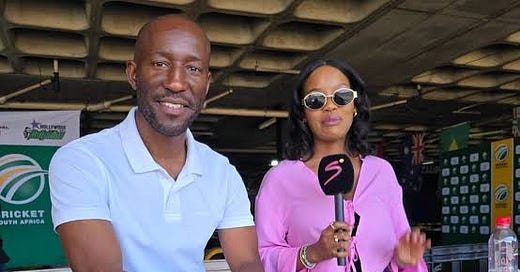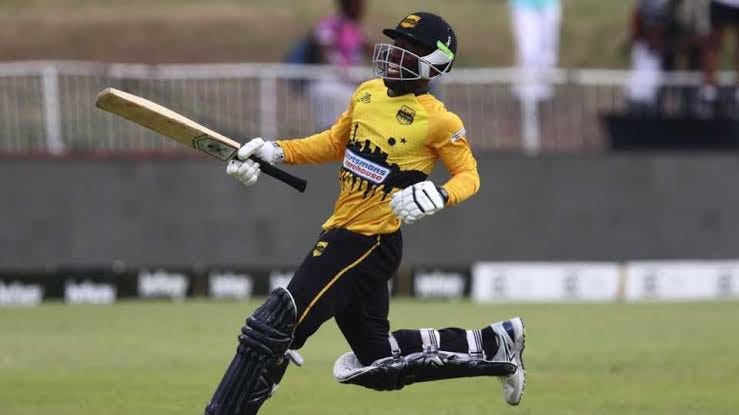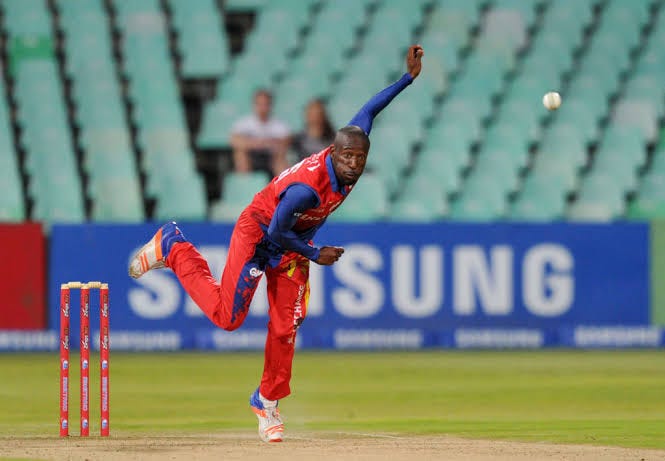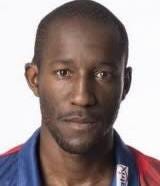A few years ago, after commentating on a day-night ODI at the Wanderers, I finally returned to my hotel shortly before midnight with an 800-word article on deadline and an early morning flight to catch. I sat down to write. The laptop was on 8% and the power cable was…at the Wanderers.
Contemplating how long it would take to write the article by thumbs on my phone, it pinged: “Did you leave your power cable at the Wanderers?”
“Yes! OMG…have you got it? I’ll come and get it.”
“No need. I’m on my way.” The detour was at least 30 minutes out of his way on route to home.
The message was from Zanzima ‘Nono’ Pongolo, freshly retired from playing at the ripe old age of 32 courtesy of a recurring elbow injury. Purveyor of honest medium pace which could be deadly if the ball was swinging, he played over 50 matches in all three formats averaging 29 with the ball and 20 with the bat in first-class cricket. He was no slouch.
One of his many highlights came a couple of years earlier batting at number nine for the Jozi Stars against the Durban Heat in the ill-fated Mzansi Super League. Needing 12 from the final two balls in the company of the number 11, he won the game with a ball to spare heaving a waist-high full-toss from Marchant de Lange over fine leg and then carving the free-hit for another six in the same direction. “Nono Pongolo has won the unwinnable game!” screamed the commentator on TV. Me.
Having dabbled in commentary towards the end of his career, Pongolo has quickly become one of the best in the country, as proficient in English as Xhosa and versatile enough to act as host and expert. I will not pretend to be dispassionate or objective about the man, the cricketer or the commentator. I’m extremely fond of all three.
Born in the famously cricket playing township of Langa just outside Cape Town, he had to travel north to pursue his dreams and was included in the Gauteng squad for the Africa T20 in 2015. He was appointed captain of the T20 team for the 2019-20 season but moved again to join the North West Dragons in 2021-22.
He’s still only 35-years-old but carries himself with an inadvertent air of authority which commands quiet respect and reflects a cricketer, and a person, who understands the ups and downs of being a professional cricket in South Africa. Specifically, a black African cricketer in South Africa.
Cricket South Africa’s selection criteria for domestic fixtures was yet again thrust into the spotlight last week when the Warriors were penalised five points for not fielding the “required target” of three black African players in their six Players of Colour. And yet again, it prompted a lot of agonising and theorising, plenty of it from people who are neither black nor a former cricketer.
So, I decided to ask Nono:
Is it true that some/many black African players still feel undermined by the ‘label’? “Some do, yes, but everything depends on the honesty of the coach and the environment they create within the squad. I’ve played under coaches where I felt like a ‘transformation player’ and others where I thrived and played my best cricket,” Pongolo told me.
“At the Lions Enoch Nkwe made it extremely clear that everyone had to push themselves to be as good as, if not better than the next guy in the squad, no matter what their colour. As an all rounder, if Wiaan Mulder or Dwayne Pretorius were the best then I had to push myself to match their standard.
“In some teams the quota doesn’t work because the black players only try to be better than the other black players to be selected, or the other players of colour just try to be better than their direct competitors. The same can apply to the white players – just be amongst the best five. That obviously doesn’t work in producing a successful, competitive team environment,” Pongolo said.
You won’t find anybody in South Africa describing the racial target situation as ‘simple’ or straightforward. Pongolo, too, admits it is complicated but is firm in his belief that they should remain, at least for the next few years until “…domestic teams start looking a bit more like the population of our country.
“One of the many problems is that too many coaches are focussed exclusively on trophy-chasing, or the promotion-relegation situation. Almost of all of them are on short-term contracts which they need to keep by winning some silverware, staying in Division One or winning promotion to it.
“And that’s made even more of a priority for them by the reduction of fixtures to single round of games in the one-day cup and the four-day challenge. That’s only seven games in the first division. This year, with so much rain around, that could be reduced to four and a half games for some teams. That puts the teams and their coaches in full ‘survival mode.’
“They feel they can’t afford to give opportunities to talented young black players because they need to win every game and think that a young, inexperienced player might cost them. So, they stick to the same, experienced black cricketers because they ‘know what they’ll get.’ If we played a full round of matches (14) or even just 10 then we might see coaches giving younger players a chance, even a decent run of three or four games,” Pongolo said. “It’s a conservative mindset that used to be attributed to the coaches because the majority were white. Now many of the coaches have that conservatism for practical and financial reasons – they have KPIs to fulfil and families to feed!”
(Nono Pongolo and I spoke for over an hour – more to come in Part 2)







That makes sense about India.
Go to the Wanderers.
See how many black people throng the stadium. People who know their stuff.
I don't believe that cricket could have survived in South Africa, had it remained the preserve of whites.
Jacque Kallis might be the consummate cricketing all rounder, but few black kids want to be Kallis. They want to be Rabada or Ntini. They want role models that they can relate to.
Yes, it's tough on white cricketers who may not find a place in the team. Yes, I hate it when a 'Daywood' Malan plays for England, or 'Labus-Shane' plays for Australia or Conway for NZ. But at least these guys get the opportunity.
I play hockey with someone whose 12 year old son was consistently scoring double hundreds. At least 3 English County clubs sent scouts out to watch this white kid play. Black kids don't get opportunities like that.
So yes, for the good of the game, quotas have to stay.
Here's to the next Kagiso Rabada and the next Temba.